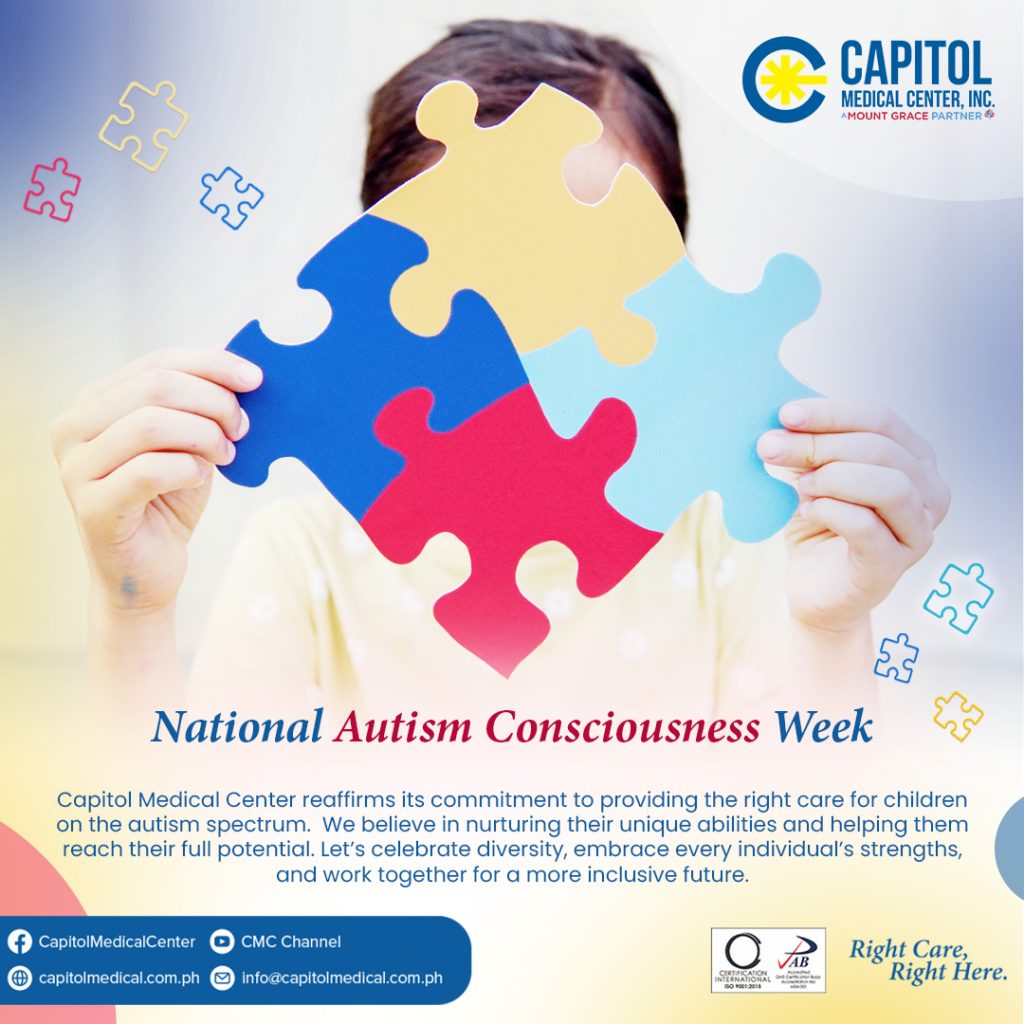
AUTISM SPECTRUM DISORDER
Autism Spectrum Disorder (ASD) is a group of neurodevelopmental conditions that typically manifest in childhood, characterized by notable challenges in social interaction, communication, and behavior. An ASD diagnosis can place significant financial, emotional, and sometimes physical strain on individuals and their families throughout the individual’s life.
Ongoing research aims to deepen our understanding of ASD’s complex nature, develop targeted interventions, and enhance resources to support affected individuals and their families.
PREVALENCE OF AUTISM IN THE PHILIPPINES
According to the Autism Society of the Philippines, the country has a prevalence of 1 in every 100 individuals. This translates to approximately 1.2 million Filipinos living with autism.
WHAT CAUSES AUTISM
The actual causes of autism remain unclear. Scientists have identified rare genetic mutations and common genetic variations associated with autism, suggesting a genetic component. Some researchers are exploring how genetic and environmental factors interact, such as measuring exposure to harmful contaminants during pregnancy and its increased probability of activating genetic mutations that contribute to the probability of autism in a child.
No evidence has been found linking autism to vaccines, including those containing thimerosal, a mercury-based preservative.
What Environmental Factors May Be Associated with Autism?
Significant progress has been made in understanding environmental risk factors associated with autism. The strongest evidence points to events occurring before and during birth, including:
- Advanced parental age at the time of conception
- Prenatal exposure to air pollution or specific pesticides
- Maternal conditions such as obesity, diabetes, or immune system disorders
- Extreme prematurity or very low birth weight
- Birth complications that result in periods of oxygen deprivation to the baby’s brain
It is important to note that these factors alone are unlikely to cause autism. Instead, they seem to increase the risk of developing autism when combined with genetic predispositions.
Importance of a Support System in ASD
Support systems, including family, friends, and medical facilities, play an essential role in providing assistance, resources, and encouragement to individuals managing conditions like Autism Spectrum Disorder (ASD). These systems are crucial for several reasons:
- Facilitating Connection: They create a supportive environment where individuals can share their experiences, fostering a sense of belonging and alleviating feelings of isolation.
- Promoting Education: Support networks offer valuable insights, practical coping strategies, and resources tailored to the specific needs of those affected.
- Empowering Individuals: They help individuals build confidence and equip them with tools to better manage their challenges and lead more fulfilling lives.
- Providing Emotional Support: Support systems offer a safe, nonjudgmental space for individuals to express their emotions and receive empathy and understanding from those who can relate to their experiences.
As the prevalence of ASD continues to rise, there is an increasing global need to provide adequate medical and financial resources to support those individuals and their families.
Capitol Medical Center: Supporting Special Needs with Compassion
At Capitol Medical Center, we are committed to advocating for and providing the right care to everyone, including individuals with special needs.
The Child Development Unit at Capitol Medical Center is dedicated to helping children with autism as well as conditions such as central nervous system (CNS) malformations, cerebral palsy, intellectual disabilities, attention deficit hyperactivity disorder (ADHD), sensory impairments, and other behavioral challenges.
For inquiries and assistance, visit the CMC Child Development Unit on the 2nd Floor of the CMC Multispecialty Center. You can contact us thru (02) 8372-3825 or (02) 5318-5100, local 2200, or email us at careconcierge@capitolmedical.com.ph.
